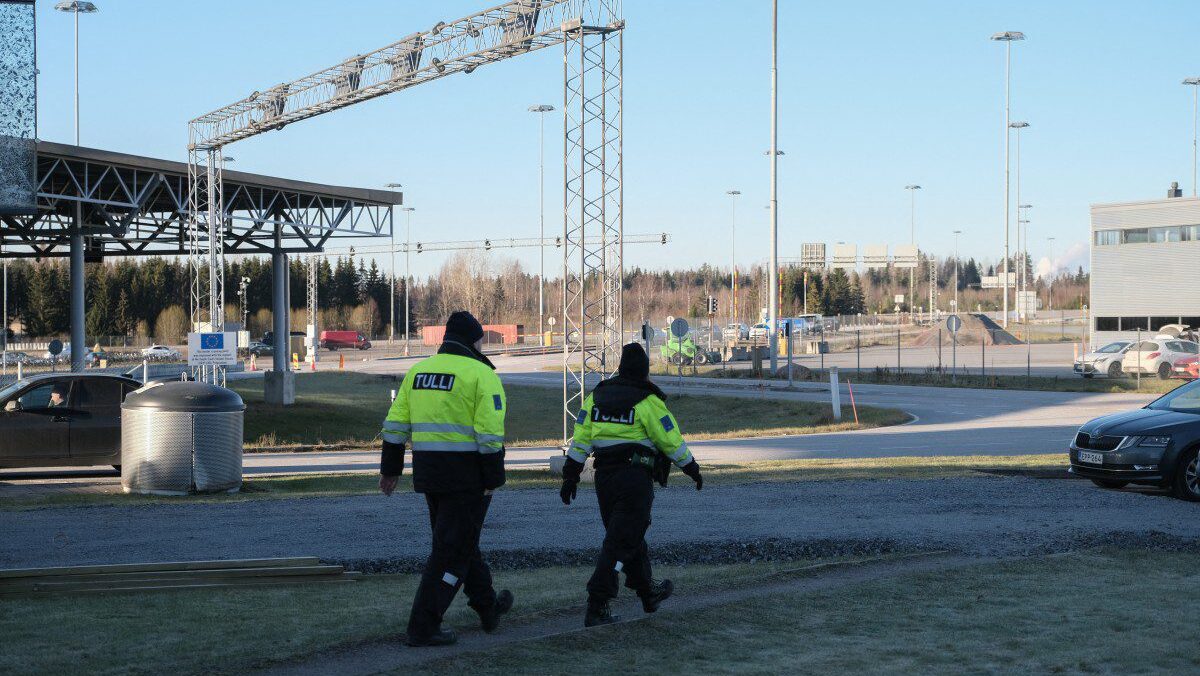
Custom officials walk near the Nuijamaa border crossing station between Finland and Russia, in Lappeenranta, southeastern Finland on November 17, 2023,
Photo: ALESSANDRO RAMPAZZO / AFP
Any ‘concentration’ of Polish personnel on Finland’s border with Russia would be viewed as a threat, the Kremlin said on Wednesday, after Poland offered to send military advisers to help Helsinki man its expansive border.
As reported by The European Conservative earlier, Finland has closed its entire Eastern border for two weeks after a surge in the number of migrants trying to enter the country. It has accused Russia of deliberately sending them to the border as a form of ‘hybrid warfare.’ Moscow has denied these allegations.
Earlier, in order to receive extra manpower to survey its 1,340 km border with Russia, Helsinki enlisted the help of the European Union’s border agency, Frontex.
On Tuesday, 50 of its personnel arrived at Finnish border posts where they would be “engaging in orientation to align closely” with the Finnish border agency to help ensure their skills are “well adapted to the local context.”
🚨 News Alert: The first group of additional #Frontex officers has just arrived in Finland, marking a significant step in our commitment to bolstering border security across the EU.
— Frontex (@Frontex) November 29, 2023
🇪🇺🇫🇮 They are now engaging in orientation to align closely with @rajavartijat, ensuring our… pic.twitter.com/Io0pG2IeGf
A late Tuesday announcement by the head of the Polish National Security Bureau, Jacek Siewiera, ruffled Moscow’s feathers when Siewiera said in a post on X that Poland would send military advisers to its NATO ally in response to an “official request for allied support in the face of a hybrid attack on the Finnish border.”
Jednym z wyników wizyty oficjalnej Prezydenta Finlandii Sauli @niinisto na zaproszenie Prezydenta @AndrzejDuda jest oficjalny wniosek o sojusznicze wsparcie w obliczu ataku hybrydowego na fińską granicę. Polska zamierza pozytywnie odnieść się do prośby naszego sojusznika z NATO… pic.twitter.com/Swqk4nP4Yu
— Jacek Siewiera (@JacekSiewiera) November 28, 2023
“A team of military advisers will provide on-site knowledge on border security, also in operational terms,” he said.
Finland said on Wednesday it was unaware of having made any such request.
According to Kremlin spokesman Dmitry Peskov, any Polish presence at the Finnish-Russian border is “unfounded.”
“No one and nothing threatens Finland and in this case this is certainly an absolutely excessive measure of ensuring border security because there is no threat there and in reality there is no tension,” the spokesman told reporters on Wednesday.
Through that course of action, Peskov noted, tension may “emerge precisely in the course of amassing additional units at the border,” as it will “pose a threat” to Moscow.
During the winter preceding the Russian invasion of Ukraine, Poland had its own taste of migrants being used as part of a broader hybrid warfare strategy. It accused its neighbor Belarus, a close ally of Moscow, of being responsible.
Like Moscow, Minsk has always denied Warsaw’s accusations.
Eventually, the flow of migrants coming out of Belarus dwindled, as Warsaw, which had invested heavily in extra border fences as well as manpower and equipment, denied entrance to anyone trying to cross the border illegally.
